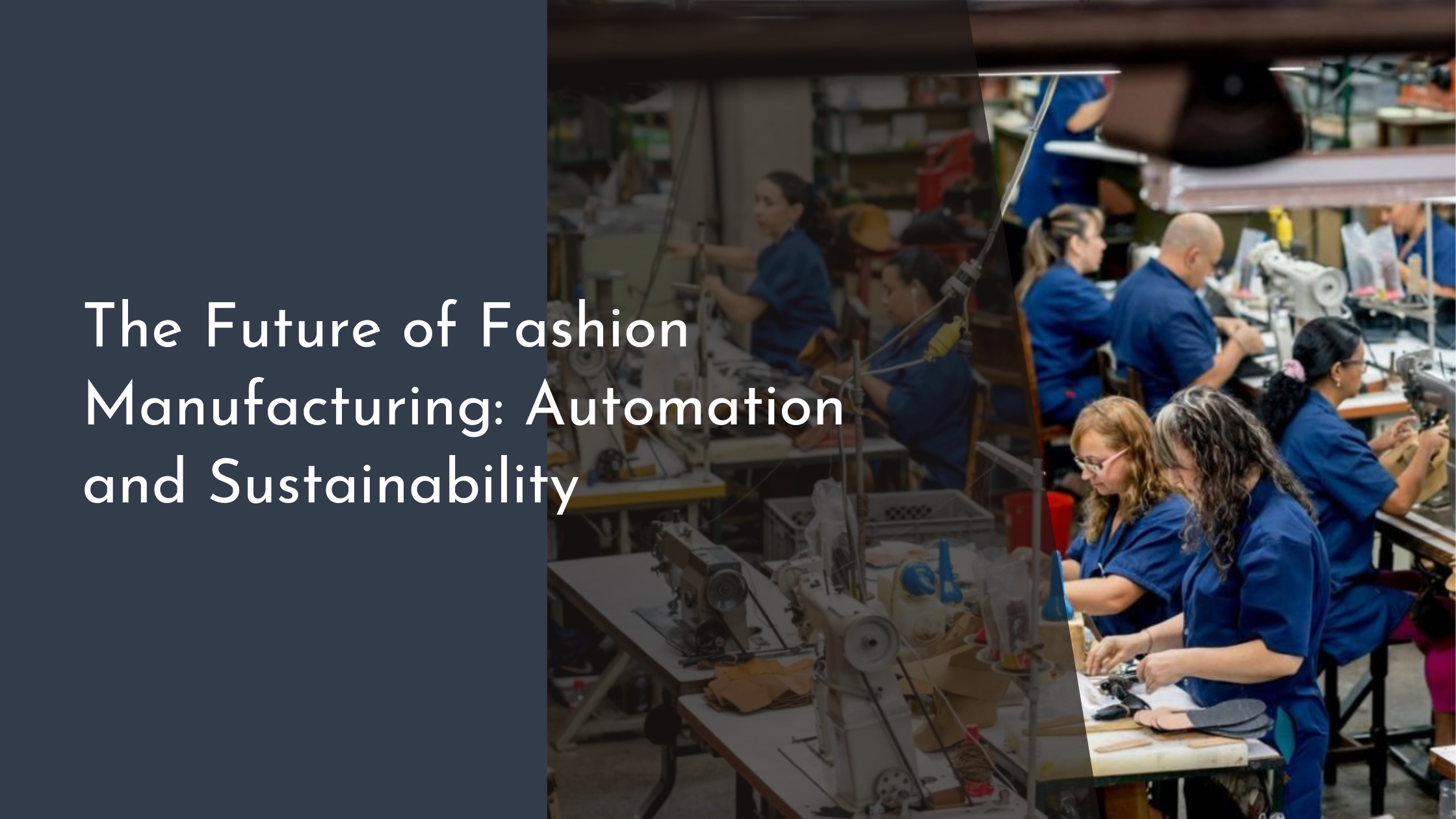The Future of Fashion Manufacturing: Automation and Sustainability
The fashion industry stands at a pivotal juncture, reimagining its processes to align with the rapid technological advancements and growing environmental concerns. As the demand for quicker production cycles and sustainable practices intensifies, fashion manufacturing is increasingly embracing automation and innovative technologies. This transformation promises not only to enhance efficiency but also to foster a more eco-friendly approach to clothing production. Let’s explore how automation, groundbreaking technologies, and sustainability efforts are reshaping the future of fashion manufacturing.
Embracing Automation in Fashion Production
Automation in fashion manufacturing is no longer a distant dream but a vibrant reality that’s rapidly evolving. With robotic sewing machines and automated cutting processes, fashion brands can now produce garments with unprecedented speed and precision. These technologies streamline the production process, reducing lead times while maintaining high-quality standards. Furthermore, automation minimizes human error and ensures consistency in production, essential for maintaining brand reputation in a competitive market.
However, the shift towards automation isn’t just about speed and efficiency. It’s also about optimizing resources and reducing waste. Automated systems can calculate the most efficient use of materials, significantly cutting down on fabric waste. This not only saves costs for manufacturers but also contributes to more sustainable production practices. By implementing automated solutions, the fashion industry can move towards a more sustainable and eco-friendly future, balancing profitability with environmental responsibility.
Innovative Technologies Shaping the Industry
One of the most exciting technological innovations in fashion manufacturing is 3D printing. This revolutionary technology allows designers to create complex garment designs and prototypes with minimal waste. 3D printing supports rapid prototyping, enabling designers to experiment and iterate without the need for extensive physical resources. This flexibility not only enhances creativity but also reduces the environmental footprint associated with traditional manufacturing methods.
Another groundbreaking technology is the use of AI and machine learning to predict fashion trends and optimize supply chains. By analyzing vast amounts of data, AI systems can forecast consumer preferences and adjust production schedules accordingly. This ensures that manufacturers produce only what is likely to sell, thereby reducing overproduction and surplus inventory. As a result, the industry can significantly decrease its environmental impact while better meeting consumer demands.
Balancing Efficiency with Sustainability Goals
As automation and technology streamline production processes, it’s crucial for fashion manufacturers to keep sustainability at the forefront of their operations. One way to achieve this balance is by adopting circular fashion principles. By designing garments that can be easily recycled or repurposed, manufacturers can extend the lifecycle of their products and reduce environmental impact. Embracing such practices not only supports sustainability goals but also enhances brand image in the eyes of environmentally conscious consumers.
Moreover, energy-efficient technologies play a pivotal role in achieving sustainability objectives. Implementing solar panels, LED lighting, and energy-efficient machinery can significantly reduce the carbon footprint of fashion manufacturing facilities. By investing in renewable energy sources and efficient technologies, the industry can achieve a harmonious balance between operational efficiency and environmental stewardship, leading to a more sustainable future.
The Bright Future of Fashion Manufacturing
The future of fashion manufacturing is bright, driven by innovation and a commitment to sustainability. As technology continues to advance, fashion brands are poised to benefit from more efficient, cost-effective, and environmentally friendly production processes. The integration of automation, AI, and sustainable practices is setting the stage for an industry that is not only profitable but also responsible and forward-thinking.
Collaborations between technology firms and fashion brands are further catalyzing this transformation. By working together, these industries can develop new solutions that address the unique challenges of fashion manufacturing. This collaborative spirit promises to drive continuous improvement and innovation, ensuring that the fashion industry remains at the forefront of technological and sustainable progress.
As the fashion industry embraces the potential of automation and sustainability, it stands on the cusp of a transformative era. By leveraging innovative technologies and adopting environmentally friendly practices, the sector can achieve a harmonious balance between efficiency and sustainability. This evolution not only benefits fashion brands and consumers but also contributes to a healthier planet. The future of fashion manufacturing is not only about producing beautiful clothing but doing so in a way that honors and preserves the environment for generations to come.


